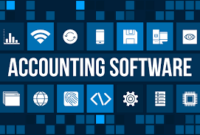Unleashing Success: Unveiling the Powerful Benefits of CRM Software
Customer Relationship Management (CRM) software has become an indispensable tool for businesses in managing customer relationships and improving overall operations. By implementing CRM software, businesses can leverage numerous advantages to optimize their customer management and achieve their desired outcomes. In this article, we will explore the wide range of benefits that CRM software brings to the table, highlighting how it revolutionizes customer interactions, streamlines sales and marketing processes, facilitates data-driven decision making, and fosters collaboration across teams.
I. Introduction
A. Define CRM (Customer Relationship Management) software and its purpose
CRM software refers to a technological solution that enables businesses to effectively manage their interactions and relationships with customers. It provides a centralized platform for organizing and accessing customer data, facilitating communication, automating processes, and analyzing valuable insights.
B. Highlight the importance of CRM software in business operations
In today’s competitive business landscape, maintaining strong customer relationships is crucial for long-term success. CRM software plays a vital role in helping businesses nurture leads, enhance customer satisfaction, optimize sales and marketing efforts, and make informed decisions based on data-driven insights. It empowers organizations to deliver personalized experiences, streamline operations, and drive growth.
II. Centralized Customer Data Management
A. Discuss the benefits of having a centralized database of customer information
One of the significant advantages of CRM software is its ability to centralize customer data. By storing all customer-related information in a single database, businesses can easily access and manage customer details, including contact information, purchase history, communication logs, and preferences. This centralized approach eliminates data silos and enables a holistic view of each customer, fostering better understanding and informed decision making.
B. Highlight the ease of accessing and updating customer data
CRM software provides a user-friendly interface that allows authorized users to access and update customer data efficiently. Whether it’s a sales representative looking for the latest contact details or a customer support agent seeking insights into past interactions, CRM software ensures that accurate and up-to-date information is readily available. This accessibility promotes collaboration among teams and eliminates redundant data entry.
III. Improved Customer Relationship Management
A. Explain how CRM software enhances customer interactions and relationships
CRM software empowers businesses to build and nurture stronger customer relationships. Through features like contact management, task scheduling, and interaction tracking, organizations can stay proactive and responsive to customer needs. By having a comprehensive overview of customer interactions, businesses can personalize communication, anticipate customer requirements, and deliver exceptional experiences at every touchpoint.
B. Discuss the benefits of personalized and targeted communication
CRM software enables businesses to segment their customer base and tailor communication based on specific customer attributes, preferences, and behaviors. This targeted approach allows organizations to send relevant offers, recommendations, and personalized messages, thereby increasing engagement and fostering stronger customer loyalty. By sending the right message to the right person at the right time, businesses can maximize the impact of their marketing and sales efforts.
IV. Streamlined Sales and Marketing Processes
A. Explain how CRM software helps streamline sales and marketing workflows
CRM software automates and streamlines various sales and marketing processes, reducing manual effort and increasing efficiency. It provides tools for lead management, opportunity tracking, email marketing, campaign management, and performance analytics. By integrating these functionalities within a centralized platform, businesses can optimize their workflows, improve collaboration between sales and marketing teams, and ensure consistent messaging across all touchpoints.
B. Discuss the benefits of automation and improved efficiency
With CRM software, businesses can automate repetitive tasks, such as data entry, follow-ups, and lead nurturing, freeing up valuable time for sales and marketing professionals. Automation minimizes human error, accelerates response times, and allows teams to focus on high-value activities. By eliminating manual bottlenecks and improving process efficiency, businesses can enhance productivity and achieve better results.
V. Enhanced Sales Forecasting and Pipeline Management
A. Discuss the benefits of using CRM software for accurate sales forecasting
CRM software provides valuable insights into sales performance, allowing businesses to forecast revenue accurately. By analyzing historical data, tracking customer interactions, and monitoring sales trends, organizations can make informed predictions about future sales and adjust their strategies accordingly. Accurate sales forecasting enables better resource allocation, strategic planning, and goal setting.
B. Highlight how CRM software helps manage the sales pipeline effectively
CRM software enables businesses to visualize and manage their sales pipeline efficiently. By tracking leads and opportunities at different stages of the sales process, organizations can identify bottlenecks, prioritize activities, and ensure a smooth transition from one stage to the next. This visibility into the sales pipeline helps sales teams focus on high-potential opportunities, optimize their efforts, and close deals more effectively.
VI. Increased Customer Satisfaction and Retention
A. Explain how CRM software improves customer satisfaction levels
CRM software enables businesses to provide personalized experiences and exceptional customer service. By having access to customer preferences, purchase history, and interaction records, organizations can offer tailored recommendations, resolve issues promptly, and demonstrate a deep understanding of their customers’ needs. This personalized approach fosters customer loyalty, satisfaction, and positive word-of-mouth referrals.
B. Discuss the benefits of personalized customer experiences and proactive support
CRM software allows businesses to proactively engage with customers through targeted marketing campaigns, personalized offers, and timely follow-ups. By anticipating customer needs and addressing concerns before they arise, organizations can exceed customer expectations and create memorable experiences. Proactive support and personalized interactions significantly contribute to customer satisfaction and ultimately drive higher customer retention rates.
VII. Effective Lead Management and Conversion
A. Discuss how CRM software helps manage leads efficiently
CRM software provides robust lead management capabilities, allowing businesses to capture, qualify, and assign leads systematically. It enables teams to track lead sources, monitor engagement levels, and prioritize follow-ups based on lead quality and potential. With CRM software, businesses can ensure that no lead falls through the cracks and that every opportunity is maximized.
B. Highlight the benefits of tracking and nurturing leads through the sales funnel
CRM software facilitates lead nurturing by providing a structured approach to guide leads through the sales funnel. It enables businesses to automate communication, deliver relevant content, and track prospect engagement, ensuring consistent and timely interactions. By monitoring lead progress and nurturing relationships effectively, organizations can increase conversion rates and optimize their sales funnel.
VIII. Data-Driven Decision Making
A. Discuss the benefits of using CRM software for data analysis and reporting
CRM software offers robust reporting and analytics capabilities, empowering businesses to extract meaningful insights from customer data. It provides customizable dashboards, visualizations, and reports that help stakeholders make informed decisions. By analyzing key performance indicators, sales trends, and customer behaviors, organizations can identify areas for improvement, optimize strategies, and drive business growth.
B. Explain how CRM software provides actionable insights for informed decision making
CRM software transforms raw data into actionable insights, enabling businesses to identify patterns, uncover opportunities, and mitigate risks. It allows stakeholders to track key metrics, evaluate campaign performance, measure customer satisfaction, and monitor sales team productivity. By leveraging data-driven insights, organizations can make informed decisions, adapt their strategies, and stay ahead of the competition.
IX. Collaboration and Team Coordination
A. Discuss the benefits of CRM software in facilitating collaboration among teams
CRM software acts as a centralized hub that fosters collaboration and alignment among sales, marketing, and customer support teams. It enables seamless communication, knowledge sharing, and cross-functional visibility, leading to enhanced teamwork and improved customer experiences. By breaking down departmental silos and promoting a culture of collaboration, businesses can provide a unified and consistent customer journey.
B. Highlight the improved coordination and alignment between sales, marketing, and customer support
CRM software ensures that teams across different departments have access to the same customer data, eliminating miscommunication and redundant efforts. It allows sales teams to provide valuable feedback to marketing about lead quality, marketing campaigns, and customer preferences. Similarly, customer support teams can access sales and marketing data to provide informed assistance. This coordination between teams ensures a holistic approach to customer management and enables organizations to deliver a seamless and unified customer experience.
X. Scalability and Growth Opportunities
A. Explain how CRM software supports business scalability
CRM software is designed to accommodate the growth of businesses. It offers scalability by allowing organizations to add new users, expand their customer database, and adapt to changing business requirements. As companies expand their operations, CRM software provides the flexibility to handle increased data volume, integrate with other systems, and customize functionalities to meet evolving needs.
B. Discuss the benefits of CRM software in identifying growth opportunities
CRM software provides valuable insights into customer behavior, preferences, and purchasing patterns. By analyzing this data, businesses can identify cross-selling and upselling opportunities, spot emerging trends, and develop targeted marketing strategies. This understanding of customer needs and preferences helps organizations uncover new revenue streams, drive customer loyalty, and identify untapped growth opportunities.
XI. Integration with Other Systems and Tools
A. Discuss the benefits of CRM software integration with other business tools
CRM software can integrate with various systems and tools, such as email marketing platforms, customer support software, project management tools, and e-commerce platforms. This integration eliminates data silos, improves operational efficiency, and ensures data consistency across different applications. By connecting CRM software with other business tools, organizations can streamline workflows, automate data synchronization, and enhance overall productivity.
B. Highlight the improved efficiency and data consistency through integration
Integration between CRM software and other systems enables real-time data exchange and eliminates manual data entry. It ensures that customer information remains consistent across different platforms, reducing errors and duplication. By integrating CRM software with other tools, businesses can leverage the strengths of each system, improve efficiency, and deliver a seamless experience for both employees and customers.
XII. Cost Savings and Return on Investment (ROI)
A. Discuss the cost-saving benefits of using CRM software
CRM software offers several cost-saving benefits for businesses. It eliminates the need for multiple standalone systems and manual processes, reducing administrative costs and improving operational efficiency. CRM software also enables organizations to optimize marketing spend by targeting the right audience and eliminating wasted resources. Additionally, it helps reduce customer churn by facilitating proactive support and personalized experiences, saving on acquisition costs.
B. Highlight the potential for a high ROI through improved customer management
Implementing CRM software can lead to a high return on investment (ROI) by improving customer management and driving revenue growth. By leveraging CRM software’s features and capabilities, businesses can optimize sales processes, enhance customer satisfaction, and increase customer lifetime value. The improved efficiency, productivity, and customer loyalty generated by CRM software can translate into significant financial gains and long-term business success.
XIII. Conclusion
A. Recap the benefits of CRM software in business operations
CRM software revolutionizes the way businesses manage customer relationships and conduct their operations. By providing centralized customer data management, enhanced customer relationship management, streamlined sales and marketing processes, and data-driven decision making, CRM software empowers organizations to achieve better outcomes and drive growth.
B. Emphasize the value of implementing CRM software for improved customer relationships and business success
CRM software offers businesses a plethora of benefits, including improved customer satisfaction, increased sales efficiency, enhanced collaboration, and better decision making. By implementing CRM software, organizations can optimize their customer management, foster stronger relationships, and unlock their full potential for success.
C. Encourage businesses to explore CRM software options and leverage the benefits for their specific needs
With the multitude of CRM software options available in the market, businesses are encouraged to explore and evaluate different solutions based on their specific requirements. By selecting the right CRM software and leveraging its benefits, organizations can gain a competitive edge, enhance customer relationships, and pave the way for sustained business growth.



